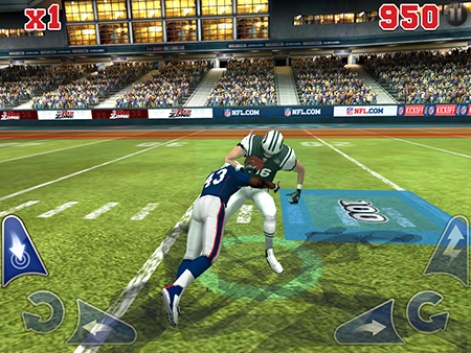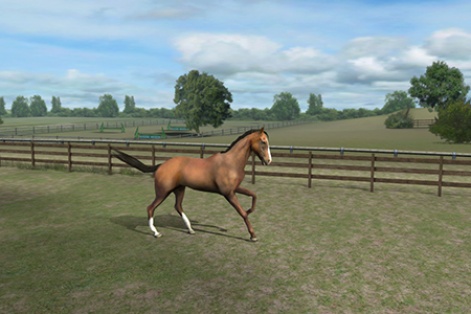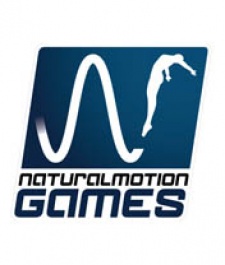Rising to prominence in mobile following success in the middleware business and a disastrous spell in console game development, NaturalMotion has achieved a great deal in a relatively short amount of time.
From creating popular premium games to leading the free-to-play charge, the company has displayed a intuitive knack for anticipating the industry's greatest shifts.
In this the first of our revamped studio profiles we talk to NaturalMotion CEO and co-founder Torsten Reil about the origins of the company, its transition to freemium and its potentially sparkling future.
Origin
Founded in Oxford in 2001, NaturalMotion began as a spin-out company from the University's Zoology Department, initially focusing on life-like and natural animation systems.
That expertise was used as the basis for the company's Euphoria animation engine, employed in AAA console releases such as as Grand Theft Auto IV, Star Wars: The Force Unleashed and Red Dead Redemption.
Buoyed by its success in the middleware business, NaturalMotion made its debut as a development studio in 2010, with the American football console title, Backbreaker.
Yet despite the game's ambitious tech, it was a commercial failure.
"Initially, it was a big blow," says Torsten Reil, pictured below.
"When Microsoft decided it didn't want Backbreaker on XBLA, we were forced to go into retail. This meant a larger scope, a very small time window for release, and limited shelf space."

CEO and co-founder Torsten Reil
It was a situation that led to a series of crucial bugs that hampered the game upon release and ultimately affected sales. Yet it also taught the company a number of important lessons.
"Most importantly, we learnt a lot from the experience: only ship when you're ready; focus innovation on one or two key areas; never-ever touch retail and only work with platforms who want to move the game forward," says Reil.
The shift to mobile
"On console, we built a lot of experience around engine development, performance optimisation, art pipelines and QA.
"But more than anything else, we learnt how to push visual fidelity and how to use real-time simulation systems to create believable characters and emergent gameplay."
It was working out how to bring some of these these ideas to mobile, alongside much of the company's tech, that proved to be a turning point for the company.
"When we realised the iPhone had the power to run our technology, we knew there was an opportunity to combine high quality visuals with accessible gameplay suited to the play patterns of mobile devices," says Reil.
"We believed that the then-dominant 2D resource management games were going to be a transient phenomenon, and that there was going to be a strong demand from people for rich, believable experiences."
It's this ethos and NaturalMotion's canny knack of anticipating and informing emerging trends that would form the basis of the company's mobile success.
Premium hits
NaturalMotion made its mobile debut in 2009 with Backbreaker Football - a version of the console title's Tackle Alley mini-game. And in contrast to the console release's failure, Backbreaker Football was a huge hit.
Indeed, such was the game's success that it caught Reil off-guard, racking up well in excess of 5 million downloads, all at a premium price.
"The iOS version of Backbreaker wildly exceeded our expectations and confirmed to us that combining high-end visuals with accessible gameplay was a huge opportunity," he says.
NaturalMotion's Backbreaker series was a hit on iOS

Following Backbreaker, NaturalMotion released Backbreaker 2: Vengeance, NFL Rivals and Icebreaker Hockey in quick succession, capitalising in the original's popularity. All were hits.
A version of Jenga was also released, which alongside NFL Rivals constitutes the companys only licensed titles thus far.
And while the Reil says that license holders are "great to work with," NaturalMotion is now concentrating on developing its own IP.
All-in-all the company's first six titles, all of which were paid-for apps, secured a 500 per cent return on investment. In an incredibly short amount of time, NaturalMotion became a runaway mobile success story.
Yet more potentially lucrative models were emerging.
Freemium frontrunners
"The mobile market moves at 10 times the pace of the traditional games market," says Reil. "And while the returns on our paid games were very good, it was obvious that free-to-play on mobile was going to be an even bigger opportunity."
With this in mind, NaturalMotion announced that it was to concentrate almost exclusively on free-to-play titles, a process that began with My Horse, an animal care-taking game.
"The basic idea was to go all-out on visuals and treat seriously a genre that most game developers snigger at," says Reil.
"There are a lot of these opportunities in the games industry, now that we have a meritocratic platform like iOS."
NaturalMotion's My Horse has been a runaway success
Thanks to this approach, My Horse racked up five million downloads within three months along with 500,000 daily users. The total download figure that now stands well in excess of 11 million.
More importantly, the game's persuasive in-app purchase options ensure that My Horse "blew everything out of the water" in terms of revenue.

Racing ahead
Yet My Horse's success is relatively modest compared to NaturalMotion's next release, CSR Racing.
Demoed on stage at the WWDC 2012 keynote, exemplifying Apple's strong support for the company, CSR Racing hit iOS in June 2012. It has been wildly popular.
Within the first month of the game's release, the car management and racing title earned NaturalMotion a staggering $12 million in revenue.
And while the company is reluctant to release any further figures, the game's prolonged stay in the top grossing charts suggests continued success.
Perhaps even more remarkable is that the game achieved all this by word of mouth alone, with very little press (beyond the WWDC announcement) and no money spent on marketing or user acquisition.
Once you deduct Apple's 30 per cent and the game's development costs, almost every penny of CSR's enormous revenues are profit.
Boss Alien's CSR Racing fit the NaturalMotion mould
The key to CSR's financial success is its sophisticated use of IAP, allowing users to invest in the title in a number of different ways. Yet despite the huge numbers it has inspired, Reil doesn't believe NaturalMotion has yet perfected the freemium model.
"Nope," says Reil. "We're only at the beginning of the learning process."
Expansion

In the past year or so NaturalMotion has expanded greatly, opening a new studio in London, acquiring CSR developer Boss Alien in Brighton and taking on new staff across both its San Francisco office and a new Oxford HQ.
Reil says it's all about staying ahead of the curve.
"Our biggest goal is to stay nimble despite our growth. The industry is changing quickly, and we want to make sure we are able to adapt to it fast - ideally before anyone else even has the change on their radar."
"We don't get a kick out of having large staff numbers. We get a kick out of creating amazing games in close-knit teams, and making stuff that's new - not clones of existing games.
"So far, we have found that revenues and profits follow."
In addition to this the company has also proved adept at securing major funding from investors, the most recent being $11 million from Benchmark Capital in a deal that saw Mitch Laskey join NaturalMotion's board of directors.
In total the company has now received $19 million in outside investment.
A bright future
As well as "several" unannounced "high-end free-to-play games" in development across NaturalMotion's numerous studios, the company is now working on Clumsy Ninja, announced at Apple's fifth generation iPod touch keynote.
Arguably the culmination of everything NaturalMotion has worked towards over the past decade, the ninja training game promises high-end visuals combined with the latest iteration of the company's simulated AI animation systems.
Plus, no doubt, cleverly managed in-app purchasing opportunities. Based on the NaturalMotion's track record, success seems inevitable.
It's no surprise then that Reil is enthusiastic about the future of both the company and the mobile industry's future.
"Mobile gaming is one of the biggest opportunities in entertainment, both from the commercial as well as the creative side," he says.
"Most likely, we'll end up calling it just 'gaming', since we're essentially talking about games on powerful devices that most of the population own.
"Quality and gameplay matter now, and whoever can truly delight their players is going to be much more successful than big spenders on user acquisition."
It's Reil's continuing goal to ensure that NaturalMotion does just that.






















